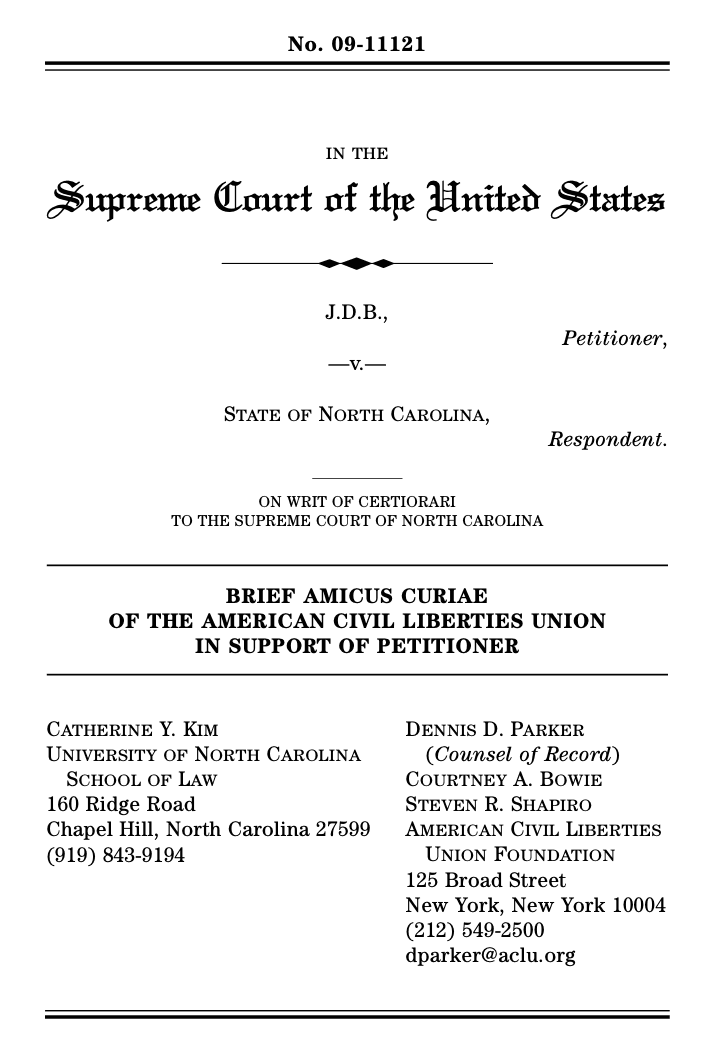
Summary of Argument
This case is not about whether school principals may question students about school misconduct. Nor is it about precautionary measures taken to maintain order and safety in our public schools. Rather, this case is limited to examining the role of police officers in public schools enforcing criminal laws; an interaction that now occurs on a regular basis in public schools across the nation. Recognizing that custodial interrogation is inherently coercive, this Court held in Miranda v. Arizona that the Fifth Amendment privilege against self-incrimination requires police to inform suspects of their rights before engaging in custodial interrogation. This Court has also held in Miranda and subsequent cases that the question of whether a suspect is in custody, and thus entitled to Miranda warnings, turns on an objective evaluation of the totality of the circumstances.
Amici agree with petitioner that the age of a juvenile suspect is an appropriate factor to consider under Miranda in deciding whether a reasonable person in similar circumstances would feel free to leave the room and end the interrogation. However, we do not repeat that argument at length here. Instead, this brief focuses on a related point. The school setting itself is an additional factor that should be considered in determining custody and applying Miranda. Students are not free agents in school. They are not free to leave their classrooms, they are not free to leave the principal’s office, and there is no reason for a child to believe that he or she is free to leave a police interrogation conducted in school as part of a law enforcement investigation.
Having litigated and conducted extensive research on issues relating to law enforcement in public schools, we respectfully submit this brief to draw the Court’s attention to the increasing prevalence of police in schools, the criminalization of student behavior that was previously treated as a school discipline problem, and the importance of safeguarding the Miranda rights of children who are subject to police interrogations in school that can and often do lead to criminal arrests.